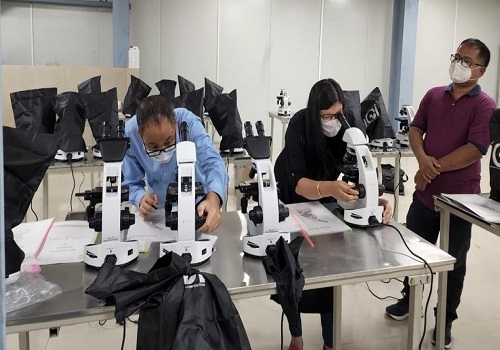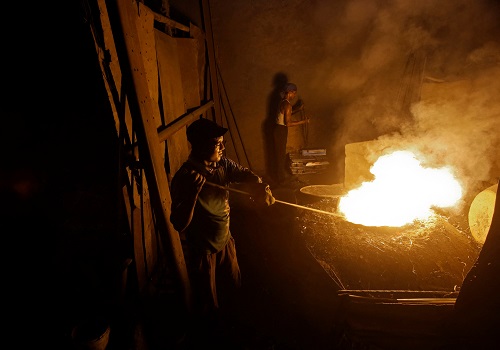Key gauges end in negative territory on Wednesday
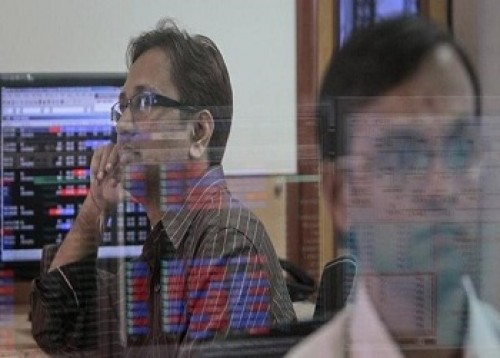
Follow us Now on Telegram ! Get daily 10 - 12 important updates on Business, Finance and Investment. Join our Telegram Channel
Indian equity benchmarks snapped their three-day record-breaking streak and ended in the negative territory on Wednesday as investors booked profit at record highs ahead of weekly expiry of index futures and option contracts. The benchmark Indices opened in green due to favourable GDP data. India's economy grew at a record 20.1 per cent year-on-year in April-June quarter, helped by a low base of the year-ago period coupled with improved manufacturing in spite of a devastating second wave of Covid-19 cases. Sentiments also remained positive as the government data stated that high tax collections due to tighter rules for the goods and services tax (GST), and an economy on the recovery path coupled with expenditure compression resulted in the Centre's fiscal deficit narrowing to 21.3 per cent of the Budget Estimates (BE) in the first four months of the current financial year. Adding more optimism, Moody's Investors Service said the economic activity in India is picking up with the gradual easing of COVID restrictions and there could be further upside to growth as economies around the world gradually reopen.
However, domestic indices failed to hold onto its early gains and turned negative in late morning session, as traders got worried, after India’s manufacturing sector activities moderated in August, as business orders and production rose at softer rates due to the pandemic and rising input costs. The seasonally adjusted IHS Markit India Manufacturing Purchasing Managers’ Index (PMI) stood at 52.3 in August, down from 55.3 in July, indicating a softer rate of growth that was subdued and below its long-run average. Traders also remain concerned after private report stated that Asia’s factory activity lost momentum in August as a resurgence in coronavirus cases disrupted supply chains across the region, raising concerns faltering manufacturing will add to economic woes caused by slumping consumption. Growth in India’s factory sector activity also slowed as persistent pandemic-related weakness weighed on demand and output, forcing firms to cut jobs again following a brief recovery in July.
On the global front, Asian markets ended mostly higher on Wednesday in spite of signs that the region's factory activity lost momentum in August due to a resurgence in coronavirus cases. European markets were trading higher even as the IHS Markit in a report said Eurozone manufacturing PMI slipped to a six-month low in August but stood well above the historical average. Separate reports revealed that British factory output grew in August at the weakest rate for six months, while Germany's retail sales declined more-than-expected in July after two months of straight growth. Back home, on the sectoral front, aviation industry stocks were in limelight as credit ratings agency ICRA said pandemic-hit Indian aviation industry is expected to report a net loss of Rs 25,000-26,000 crore while its debt level may increase to Rs 1.2 lakh crore in the ongoing fiscal year.
Finally, the BSE Sensex fell 214.18 points or 0.37% to 57,338.21, while the CNX Nifty was down by 55.95 points or 0.33% to 17,076.25.
The BSE Sensex touched high and low of 57,918.71 and 57,263.90, respectively and there were 12 stocks advancing against 17 stocks declining on the index.
The broader indices ended in green; the BSE Mid cap index rose 0.92%, while Small cap index was up by 0.22%.
The top gaining sectoral indices on the BSE were Realty up by 5.46%, Power up by 1.73%, Consumer Durables up by 1.46%, Utilities up by 1.29% and Capital Goods up by 1.22%, while Metal down by 1.83%, IT down by 1.35%, TECK down by 1.17%, Basic Materials down by 0.82% and Finance down by 0.10% were the top losing indices on BSE.
The top gainers on the Sensex were Asian Paints up by 3.20%, Nestle up by 1.73%, Axis Bank up by 1.54%, Dr. Reddy's Lab up by 1.17% and Titan Company up by 0.94%. On the flip side, Mahindra & Mahindra down by 2.89%, Tata Steel down by 2.67%, Bajaj Finserv down by 2.04%, TCS down by 1.91% and HDFC down by 1.90% were the top losers.
Meanwhile, Moody's Investors Service in its August update to 'Global Macro Outlook 2021-22' has said the economic activity in India is picking up with the gradual easing of COVID restrictions and there could be further upside to growth as economies around the world gradually reopen. Moody's retained India's growth forecast for the 2021 calendar year at 9.6 per cent and 7 per cent for 2022.
The rating agency said it expects the Reserve Bank to maintain an accommodative policy stance until economic growth prospects ‘durably improve’. It mentioned ‘We expect the RBI to maintain the status quo until the end of this year. We expect to see an increasing number of emerging market central banks shift to a neutral policy stance amid their gathering growth momentum later this year and early next year.’
Indian economy contracted 7.3 per cent in 2020-21 fiscal. GDP growth in the current fiscal was estimated to be in double digits initially, but a severe second wave of the pandemic has led to various agencies cut growth projections. Moody's had in June projected a 9.3 per cent growth for the current fiscal ending March 2022.
The CNX Nifty traded in a range of 17,225.75 and 17,055.05 and there were 21 stocks advancing against 29 stocks declining on the index.
The top gainers on Nifty were Asian Paints up by 3.10%, Tata Motors up by 2.56%, SBI Life Insurance up by 1.87%, Nestle up by 1.73% and Axis Bank up by 1.51%. On the flip side, Mahindra & Mahindra down by 2.96%, Cipla down by 2.73%, Tata Steel down by 2.71%, Hindalco down by 2.20% and Bajaj Finserv down by 2.10% were the top losers.
European markets were trading higher; UK’s FTSE 100 increased 39.16 points or 0.55% to 7,158.86, France’s CAC rose 57.48 points or 0.86% to 6,737.66 and Germany’s DAX was up by 10.82 points or 0.07% to 15,845.91.
Asian markets ended mostly higher on Wednesday despite concerns over resurgence in corona-virus cases in the Asian region. Chinese shares settled higher as weak factory activity data raised hopes for more policy support. The manufacturing sector in China declined into contraction in August, the latest survey from Caixin revealed with a manufacturing PMI score of 49.2, down from 50.3 in July. Japanese shares gained amid bets Japanese Prime Minister Yoshihide Suga's manoeuvring might help to diminish potential concerns about the country's political stability. Private report said that Suga intended to dissolve the lower house of parliament in mid-September and was considering holding the general election on October 17. Although, Suga said he had no plans to dissolve the country's lower house because of the severity of the Covid-19 situation.
Above views are of the author and not of the website kindly read disclaimer


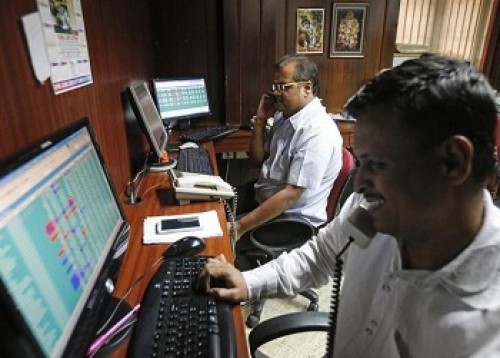
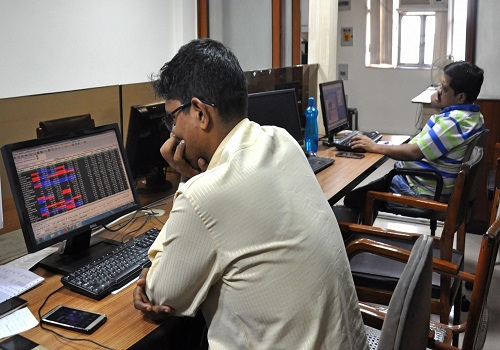




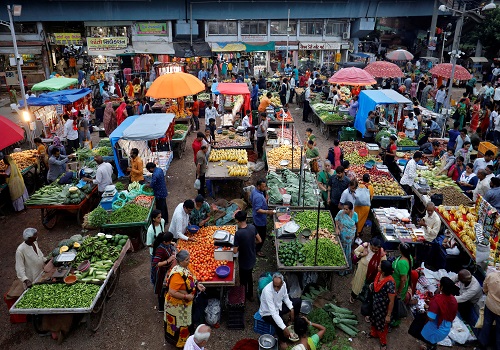

Tag News

Weekly Market Analysis : Markets strengthened recovery and gained nearly 2% in the passing w...



More News

Banknifty has relative strength but it is also facing resistance in the 39000-39500 zone - S...








